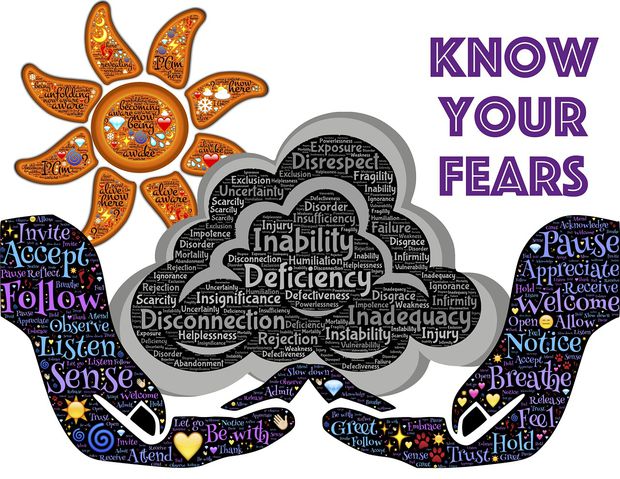Jealousy is an emotional response to a perceived threat or loss of something or someone that is valued. It is often characterised by anger, fear, insecurity, and inadequacy, and can be accompanied by possessiveness, mistrust, and resentment.

The origins of jealousy can be traced back to evolutionary psychology, where it is thought to have developed as a way to protect and defend valuable resources, such as mates and social status.
In this view, jealousy serves as a mechanism to safeguard against the loss of these resources and to ensure their continuation within a group.
Jealousy can also be influenced by cultural and social factors, such as the expectations and norms of a particular society or group. For example, in some cultures, jealousy may be more prevalent and socially accepted, while in others it may be seen as a negative emotion that is discouraged.
In addition to its evolutionary and cultural roots, jealousy can also be influenced by personal experiences and individual differences.
For example, past experiences with betrayal or rejection may increase the likelihood of feeling jealous in a current relationship, as may certain personality traits such as insecurity or low self-esteem.Another negative feeling that commonly arises in a poly relationship is insecurity.
Insecurity in romantic and sexual relationships refers to feelings of inadequacy, uncertainty, or self-doubt that can affect an individual's thoughts, behaviours, and interactions with their partner/s.

It can be fuelled by a variety of factors, including negative self-perception, past experiences, and external influences.
People with low self-esteem may feel like they are not good enough, worthy, or deserving of love and acceptance, which can lead to feelings of insecurity in their relationships. Low self-esteem can be influenced by a variety of factors, such as negative experiences, criticism, or comparisons to others.
There are a variety of other external influences, such as societal expectations and norms, that can also contribute to feelings of insecurity in polyamorous (romantic and/or sexual) relationships.
When both insecurity and jealousy meet, the whole status of the poly relationship can stumble. This is because rivalry and envy lead to feelings of inadequacy, anger, fear, and mistrust, and can affect an individual's behaviours and interactions with their partner/s.
What are some tips when dealing with jealousy in a poly relationship? Top tips.
- Communication above anything else: having open and honest communication with your partners about your feelings, thoughts, emotions and concerns is essential. This will help you better understand each other's needs and boundaries, and can also help you work through any issues that may arise and implement the required changes.

- Acknowledging and validating your feelings: It’s ok up to a certain extent to feel jealous or even upset. Recognising and validating your emotions and feelings of jealousy is important. The exercise of acknowledging and accepting those feelings will push you to work on and healthily deal with them.
The best way to do this is by focusing on the positives of your poly relationship. Keep reminding yourself why you chose your partners and this lifestyle as well as the positive aspects of e each partner. This will indirectly build your confidence and help you feel more secure in your relationship. - Self-awareness. It is pivotal to take the time to reflect on the root causes of your jealousy, rivalry, envy, and insecurity. Try to put words into your negative emotions, even voice them out loud to rationalise them and subtract part of their negative connotation.
By understanding the underlying reasons for those emotions, you can better address them and even make them disappear to open a window for positive and fulfilling feelings instead.
Jealousy and envy are destructive. These emotions lead to possessiveness, resentment, and other negative behaviours that can damage your relationship.
In a polyamorous relationship, it's important to focus on building positive, supportive relationships with your partners, and jealousy and envy can be counterproductive to this goal. - Boundaries. Establishing and sticking to your and your partner's boundaries makes for a big deal of the success of your poly relationship.
Agreeing on clear boundaries, and expectations with your partners to ensure that everyone is on the same page is a must.
This can include setting limits on the amount of time and energy you are willing to devote to your partner's other relationships or agreeing on certain behaviours that are off-limits within the relationship, among others.

- Seek support: If those negative feelings seem to be taking over your relationship and it affects the quality of your time spent with your partners, then you might need some external help.
This support may come in the form of professional help, like a therapist. Also, it can come from a trusted friend or family member and overall from the poly and open relationships community.
There are many resources and support groups available for people in poly relationships, and these can be a great way to connect with others who are going through similar experiences.
This is the best way to get objective and honest feedback. This can be very helpful as you will feel in a nonjudgmental space to explore those emotions and help you develop coping strategies.

- Understanding polyamory. These relationships require a different mindset. In a polyamorous relationship, it's important to be open, non-possessive, and accepting of your partner's other relationships.
This may require shifting your mindset away from traditional notions of monogamy and exclusivity, and embracing a more open and inclusive approach to relationships. Jealousy and envy, which often involve a desire to control or possess others, may not fit with this mindset. - Self-care: Sometimes, feelings of jealousy arise due to certain unmet needs. These emotions might grow and develop under your expectations of being your partners’ role to fix and fulfil them.
It is the case on many occasions that this dissatisfaction comes from not prioritising your own needs and taking care of yourself.
This can include simple things like setting aside time for yourself, engaging in activities that bring you joy and fulfilment, seeking support when you need it and building a network that contributes to your personal growth. - Forgiveness: Even though feelings of jealousy and entitlement of possession are emotions that will only bring negativity, they somewhat, sometimes can be the result of truthful issues.
In other words, sometimes you may feel hurt by your partner/s in your poly relationship, by being neglected in some ways.
Sometimes these negligences can be unintentional and easily fixed with open communication and honesty. Practising forgiveness and finding ways to let go of anger and resentment, can be the fix for all of the above issues. Moving forward positively and constructively will strengthen and build trust in your poly relationship.

Why do jealousy, rivalry and insecurity arise in polyamorous relationships? Top reasons.
- Feeling threatened: Seeing your partner with someone else can be perceived as a threat to the relationship, especially if you feel like your partner is giving more attention or affection to the other person. This can lead to feelings of jealousy and insecurity.
- Unmet needs: If you have unmet needs in your relationships, such as a lack of affection or attention, you may feel jealous and insecure when your partner/s is with someone else. This can be especially true if you feel like your partner is meeting the other person's needs but not yours. These feelings might be true or not.
- Personal self-consciousness: Feelings of dissatisfaction about your attractiveness, intelligence, or worth can also contribute to feelings of jealousy and insecurity in a poly relationship. Seeing your partner with someone else can trigger these insecurities and make you feel like you are not good enough.
- Past experiences with infidelity or other forms of betrayal can also lead to feelings of jealousy and insecurity in a poly relationship. These feelings may be compounded if your partner is unwilling or unable to address your concerns about their other relationships.
- Poor communication and a lack of transparency in a poly relationship can also contribute to feelings of jealousy and insecurity. If you feel like your partner is hiding something from you or not being honest about their other relationships, it can be difficult to trust them and feel secure in the relationship.
Seeing your partner with someone else can create feelings of competition, especially if your perception of the other person is more attractive, successful, or desirable in some way. - If one partner is more emotionally available than the other, this can create feelings of jealousy and insecurity. The less emotionally available partner may feel like they are not being given the same level of emotional support and connection as the other partner.
- If one partner is more attracted to the other partner than the other partner is to them, this can create feelings of jealousy and insecurity. The less attracted partner may feel like they are not as desirable or attractive as the other person.
- If one partner is more compatible with the other partner than the other partner is with them, this can create feelings of jealousy and insecurity. The less compatible partner may feel like they are not as well-matched or compatible with their partner as the other person is.

Final Thoughts
Jealousy and envy are feelings that can be challenging to navigate in any relationship, and this is especially true in polyamorous relationships, where there may be multiple romantic and/or sexual partners.
By focusing on open communication, trust, and a mindset of acceptance and inclusivity, you can work to overcome these emotions and create strong, supportive relationships with your partners.
Jealousy is a complex and multifaceted emotion that can be influenced by a variety of factors, including evolutionary psychology, cultural and social norms, personal experiences, individual differences, low self-esteem, past experiences, and external influences.
It is important to address and work through feelings of insecurity healthily and constructively to build self-confidence and strengthen your poly relationships.
Working out these issues together with your partner openly and honestly to find solutions that suit everyone is the best way to build and thrive in a successful poly relationship.
